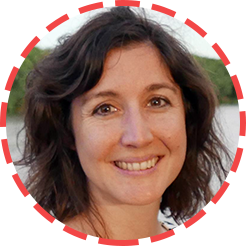Are you studying French IGCSE? If so this article is a must-read, as you need to know which IGCSE French Exam Board you are taking so that you can do your best in the final exams.
Above all, it is important as the courses vary depending on the chosen exam board.
Both exam boards – Cambridge Assessment International Education (CAIE) and Pearson Edexcel – offer French as a foreign language for international students.
Although students who opt for different boards are expected to have the same level of language proficiency, the way they learn, what they learn, and how their knowledge is assessed differs.
To help you navigate your IGCSE French journey, let’s take a closer look at these alternatives and why they matter.
Cambridge IGCSE French
The programme is recognised by leading universities and employers around the world, and upon graduation, students have a wide variety of options to continue their education, including Cambridge International AS & A Level French. In addition, some students go on to successfully complete IB Diploma French.
French is one of the 30 languages offered by Cambridge IGCSE. It is available in 4,700 schools across 150 countries.
The Cambridge IGCSE French course aims to provide language proficiency equivalent to the A2 level. Plus in some areas, the B1 level. To achieve this, it offers a solid foundation in grammar and vocabulary through a variety of written and spoken texts broken down into five topics:
- Everyday activities;
- Personal and social life;
- The world around us;
- The world of work;
- The international world.
Cambridge IGCSE French Assessment
At the end of the course, students take four papers, which assess all the major language skills individually.
- Paper 1: Listening. It contributes 25% to the total result. Students are given 50 minutes to answer 37 multi-choice and matching questions. Paper 1 consists of 6 recordings, and it is possible to listen to each of them two times. These recordings come in the form of announcements, phone messages, news items, monologues, dialogues, interviews, and discussions, as well as formal and informal conversations.
- Paper 2: Reading. Weighted at 25% of the final score (with a maximum of 45 marks), this externally assessed exam component requires students to read 6 types of texts and answer corresponding questions, such as multiple-choice, matching, and short-answer ones. When it comes to text types, those could be short statements, signs, notices, instructions, messages, advertisements, emails, messages, postcards, letters, blogs, descriptions, etc. Students have one hour to complete the tasks.
- Paper 3: Speaking. Internally assessed, this part of the examination provides up to 40 marks, which corresponds to 25% of the final result. Overall, the exam takes 10 minutes, two minutes out of which are given to a role play, and eight minutes to two topic conversations. The roleplay part of the assessment consists of 5 tasks, and the completion of each brings 2 marks (a total of 10 marks is available). The topic conversation provides up to 15 marks for Communication and 15 marks for the Quality of Language (a total of 30 marks).
- Paper 4: Writing. Contributing 25% to the total score, this paper requires students to complete three tasks within one hour. These involve writing on familiar topics, composing a letter, email, or blog post, and filling in a form with single words or short phrases. The completion of Paper 4 brings 45 marks.
Cambridge IGCSE French Grading
Cambridge IGCSE offers two marking systems: the 9-1 scale (French 7156), with 9 being the highest grade, and the A-G scale (French 0520), where A is the highest grade. There are no syllabus or assessment differences between these grading systems, but students must choose their preferred system before their examinations.
Edexcel IGCSE French Exam Board
French as a second language is one of their 17 language choices for international students. As UK’s largest academic and vocational Awarding Organization, it is recognised by schools, higher educational establishments, and employers alike. The qualification aims to extend students’ knowledge by developing their spoken skills, as well as broadening their reading, writing, listening, and understanding abilities.
The course’s programme is structured around 5 main topics:
- Home and abroad;
- Education and employment;
- Personal life and relationships;
- The world around us;
- Social activities, fitness and health.
Achievement in the IGCSE French is broadly equivalent to Levels A2 and B1 of language proficiency.
Edexcel French Assessment
To assess students’ academic performance, Pearson Edexcel has 3 Papers in place:
- Paper 1: Listening. Students are given 7 recorded extracts in the form of monologues, dialogues, or conversations between three parties. After listening to each extract twice, students answer a series of questions. In summary, this includes multiple-choice, multiple-matching, note-taking, table-completion, and gap-fill questions. Finally, there is a 35-minute limit to fulfill all tasks. With up to 40 marks, Paper 1 contributes 25% to the total score.
- Paper 2: Reading and Writing. This paper consists of two parts: reading as well as writing and grammar. For each part, examinees have 52 minutes to complete the tasks. Overall, they can earn 80 marks, which constitutes 50% of the final result.
The Reading part involves reading five passages from a variety of authentic sources, with one of the excerpts taken from a literary source.
The student answers various types of questions such as multiple-choice, multiple-matching, note-taking, table-completion, gap-fill, and short-answer questions.
The Writing task envisions producing two texts in French: one is 60-75 words long, and the other has a word count of 130-150. The final question of the assessment is grammar-based, which requires students to put the correct forms of verbs and adjectives.
- Paper 3: Speaking. The assessment consists of three tasks. One of them involves answering questions presented in a picture, for which students have 2-3 minutes. Next, they will be engaged in a discussion of two topics corresponding to the content of the syllabus. Each discussion is approximately 3-3,5 minutes long. Overall, the speaking assessment takes 8-10 minutes, with a maximum number of marks of 40 (25% of the total grade).
Edexcel IGCSE French Grading
The Edexcel qualification uses a 9–1 grading scale. Where 7 aligns with the bottom of grade A, 6 and 5 are equivalent to B and C, 4 is the bottom of C, and 1 corresponds to G grade.
Final Thoughts On IGCSE French Exam Boards
As you make your first steps in IGCSE French, it’s paramount to get to know the specificities of your chosen exam board. Understanding these nuances and requirements will not only help you prepare effectively for your assessments but also enhance your overall learning experience.
At TutorsPlus, we understand the importance of comprehensive preparation and support for aspiring IGCSE French students. Our experienced tutors are well-versed in the requirements of various exam boards. This means they can provide personalised guidance to help you succeed. From targeted revision strategies to practice exam sessions, our tutors are here to boost the skills and confidence you need to finish the IGCSE French course with a bang. Get in touch with us at 022 731 8148 and info@tutorsplus.com to learn more about how we can help you in learning French.











